Is it possible to channel a higher degree thesis? I believe that you can, and I base that on the experience of writing my own doctoral thesis. That's why I have recently published a short book called How to Channel a PhD. It details the specific processes I used to become deeply inspired and earn a doctorate in short time.

A lot of researchers and higher degree students have forgotten the excitement of learning, and with it the intuitive instincts which make research a potentially exciting and rewarding experience. Of course, it's not their fault, as modern education systems have pretty much drilled these things out of them. In turn, that education system is founded in a very peculiar historical period (this one!) where our smartest and most learned people have typically lost connection with what I call Integrated Intelligence - the deeep connectedness of mind and cosmos. That is a genuine pity, because I believe that the pursuit of knowledge can (and should be) be a genuinely transformative experience. The Romantic philosophers and mystics understood this very well, and that is the spirit of inquiry that I am hoping to instill in those who read this little book. It is perfectly suitable to all those who conduct research of any kind, not just to formally enrolled students.
A lot of researchers and higher degree students have forgotten the excitement of learning, and with it the intuitive instincts which make research a potentially exciting and rewarding experience. Of course, it's not their fault, as modern education systems have pretty much drilled these things out of them. In turn, that education system is founded in a very peculiar historical period (this one!) where our smartest and most learned people have typically lost connection with what I call Integrated Intelligence - the deeep connectedness of mind and cosmos. That is a genuine pity, because I believe that the pursuit of knowledge can (and should be) be a genuinely transformative experience. The Romantic philosophers and mystics understood this very well, and that is the spirit of inquiry that I am hoping to instill in those who read this little book. It is perfectly suitable to all those who conduct research of any kind, not just to formally enrolled students.
Below, I include an extract from the book. How to Channel a PhD is available in Kindle format at present for $1.99 (although you can also purchase the PDF directly from me at my new web site www.marcustanthony.webs.com).
Happy reading (and research)!
Marcus
* * *
Table of Contents
8.
Finally
* *
*
Don’t get so far ahead
of the parade that nobody can see where you are.
John
Naisbitt (futurist)
Only intuition, resting
on sympathetic understanding can lead to these laws. The daily effort comes
from no deliberate intention or program, but straight from the heart.
Albert
Einstein
Introduction
One
day several decades ago, a young man walked into a public library. He wanted to
find answers to some deep questions he had been asking himself about the nature
of mind, cosmos and their relationship to modern physics. In those days there
were no computers, and he did not have much of a liking for the card catalogue,
so he did what he often did when he wanted to home in on some hard information.
He began walking along the many shelves of books. He did not bother to look at
the call numbers librarians had spent thousands of hours inscribing on the
binding of the books. Instead, he just kept walking. Suddenly, he got the
strong feeling he had been waiting for, stopped, reached out and grabbed a book
from the shelf. The book was exactly what he needed, addressing the effect of
human observation on experiments in quantum physics. It was that moment which
launched Michael Talbot on a lifelong interest in the confluence between
mysticism and what he called “the new physics” (Talbot 1992 p 137).
What
interests me about Talbot’s tale, is not so much his beliefs about links
between mysticism and physics, but the ‘way of knowing’ he used to locate his
data. Why did he not just use a computer search like everybody else? Was he
just being lazy? The answer, according to Talbot, is that he often relied on
his intuition, and a sense of feeling to find books in libraries. He felt that
this was often a more reliable process than using conventional methods. He
believed that he would be led to find the answer to the question she was posing.
What
would you do? Chances are you would head for the card catalogue, or the modern
equivalent, the computer database. And that tells us something about the way
our minds have been trained to think, and the ways of knowing that we have come
to call “normal” in the modern world.
Some
will dismiss Talbot as a “New Ager”, “hippie”, or as simply deluded. Yet these
terms relegate Talbot to the realm of the other, and effectively prevent us
from asking “why” - and more importantly “how” - he used intuition to locate
information in public libraries. In this way we as researchers remain confined
within our comfort zones, and the boundaries to our knowledge are unconsciously
maintained.
In
this booklet I am going to push the boundaries, and bring us to the frontiers
of mind – at least as defined in the modern Western world. Below, I will
outline five intuitive research tools which can be used by researchers. Together
they form an approach to research I call Integrated Inquiry (INQ). Although the
title of this booklet addresses doctoral candidates, there is no reason why researchers
and students at any level – undergraduate or postgraduate – cannot use INQ in
their research or studies. It can be used by professional and lay researchers
everywhere.
The modern researcher
Most students embarking
on a higher degree have spent many years and made great sacrifices learning
their trade. Most have spent nearly two decades in a modern education system. This
educational experience shapes not only the way they use their minds and conduct
their research, but creates strong beliefs about what constitutes ‘rational’,
as well as what ways of knowing are valid. They have learned to identify
problems, design projects, ask questions, construct experiments, conduct
literature reviews, collect data, calculate, analyze, cite sources, and report
findings. These processes and their ‘rational’ ways of knowing are all part of
the formal research process.
Such
is the restrictive nature of conventional research, and the training process so
long, that by the time a research student has come to write up her masters or
doctoral thesis, it is almost inevitable that she has forgotten about an entire
range of cognitive processes that are actually very natural to human beings.
These are the ‘other’ ways of knowing which have been left off the map of
modern research, and neglected by the entire modern education system, and our
science. They have been largely rejected by developed civilisations, both East
and West. For underpinning the modern research project is a hegemonic process
which has both retarded and silenced mystical/spiritual ways of knowing, and
removed potentially invaluable information and tools from the research process.
In
How
to Channel a PhD, I want to share with you some of the skills and
processes of Integrated Inquiry. I believe that INQ can be utilized by all
researchers to make research and learning more passionate and fun. What’s more,
the processes I outline can actually make your work more efficient, because
once you have learned to trust your intuitions you can skip a lot of the
guessing that is involved in relying too much on ‘rational’ methods of inquiry!
However you have to be willing to open your mind - literally.
In
Part 1 of this booklet I describe how I came to develop the theory of
Integrated Intelligence (INI) - a human mental capacity which exists both
within and beyond the brain, and encompasses mystical insight. This section
includes how I developed my own intuitive abilities. In Parts 2 and 3 I provide
an explanation of Integrated Intelligence and brief historical overview of it
(if you are only interested in the hands-on applications of INI, you might like
to skip these sections). Parts 4 and 5 represent the crux of this booklet. They
detail the practical intuitive processes which you can start using right away
in your research. These are the INQ Tools. These two sections include very
practical examples from my experience as a researcher, and excerpts from the
study diary I kept as a doctoral candidate. In Part 6 I present some other
useful tools which will help keep your mind and heart on your research, even
during tough times. Part 7 addresses several issues you may face as you apply
these kinds of tools to your research.
The
approach I recommend in this booklet may be an affront to seasoned researchers.
However, in the spirit of my own academic discipline – [1]Deep
Futures - I like to challenge common conceptions. I offer this booklet as an
act of dissent – a challenge to prevailing methods and the dominant paradigm.
Finally,
please keep in mind that How
to Channel a PhD is not a work of science. It reflects my personal
approach to knowledge, and this has emerged from many years of engagement with
my subject matter – including formal research. I can only encourage you to
engage in this exciting topic with all the passion and enthusiasm you can
muster. If you can do that, you will truly know what it means to love learning.
1. How I came to develop Integrated Inquiry
I have used all the
tools and processes I outline in this booklet for many years. I adapted them
from intuitive abilities I learned long before I became a researcher. From
about 1993-2002 I spent much of my time engaging in meditative states,
recording and analyzing dreams and visions, as well as engaging in inner child
work and emotional healing.[2]
At one point in the 1990s I read almost nothing for five years, instead
focusing upon experiencing other ways of knowing and being. This ‘initiation’
into the intuitive mind taught me a lot about the limits of the ‘rationality’
that dominates modern education and science. I came to see that human knowledge
and understanding can be greatly enhanced by developing mental abilities and
processes that are not currently accepted in the Western world (and many other
parts of the world, too).
When
I came to research and write a doctoral thesis beginning in 2002 (the topic was
about Integrated Intelligence), I deliberately employed these intuitive ways of
knowing alongside the ‘rational’ mental processes expected of me by ‘the
system’. As a result I was able to complete a 110 000 word thesis and publish a
dozen or so research booklets within the space of four years – all while
working full-time as a teacher and educator. My thesis was accepted for
publication, and formed much of the research detailed in my book Integrated
Intelligence (Sense Publishers, 2008). What is more, the experience of
writing and researching my doctoral thesis was often a joyful one! At times it
was effortless, as I entered a relaxed state of non-ordinary consciousness.
Ideas and understandings often gushed out of me like water from a fountain.
Yes,
I channeled my PhD! (Well, at least part of it).
My
thesis received very strong reviews from my three independent examiners. One
wrote:
This
doctoral thesis is an exceptional document. I am hard put to adequately express
all the thoughts it brings to mind. I am first most impressed by the fact that,
based on where I see the hopeful discourse for our time headed, this thesis
seems to have leaped ahead and got to where the discourse will, if we are
lucky, arrive in maybe another decade or more.
I
see this thesis as being the sort of island or rock upon which one can build a
very significant career either as an educator or as a writer, or as both.
Again, I must stress I see (Marcus T Anthony) as having reached where others
will arrive, and most not so well, some years yet ahead in time.
His
marshaling of references is very impressive. Rather than simply tie his
presentation to one or more powerful established positions, he has fought his
way clear to achieve what seems to me a rare independence and maturity of mind.
My doctorate was officially awarded under the discipline
of “Policy Studies.” I read a lot of literature in Futures Studies
* * *
[1] For an overview of Deep Futures, see Article of the same name,
which I wrote for Nanyang Technological
University: http://www.mindfutures.com/articlepdfs/artpdf25.pdf
[2] You can read about my early intuitive experiences in more detail in
the introduction to my Book Discover Your Soul Template
(Inner Traditions, 2012). This book also details the INQ Tools in greater
detail, in relation to the way they can be used in real life situations.
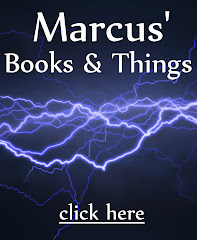
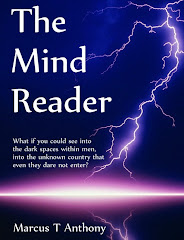
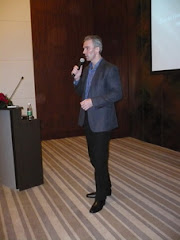

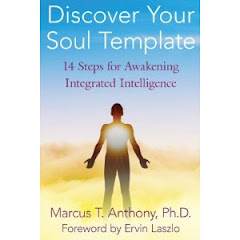
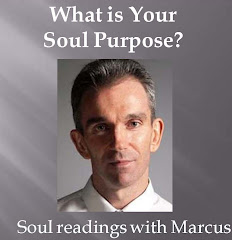
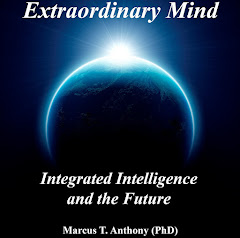





This book will certainly help a lot of people who are writing their thesis paper. I think it is a good idea to publish books like this because there are a lot of grad student who are finding thesis help with their writing. And this is one of those books that would certainly make an impact to people.
ReplyDelete